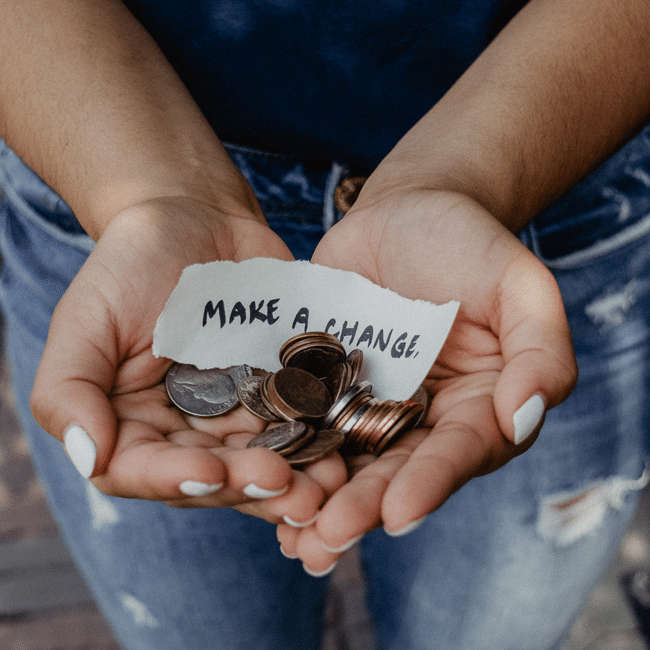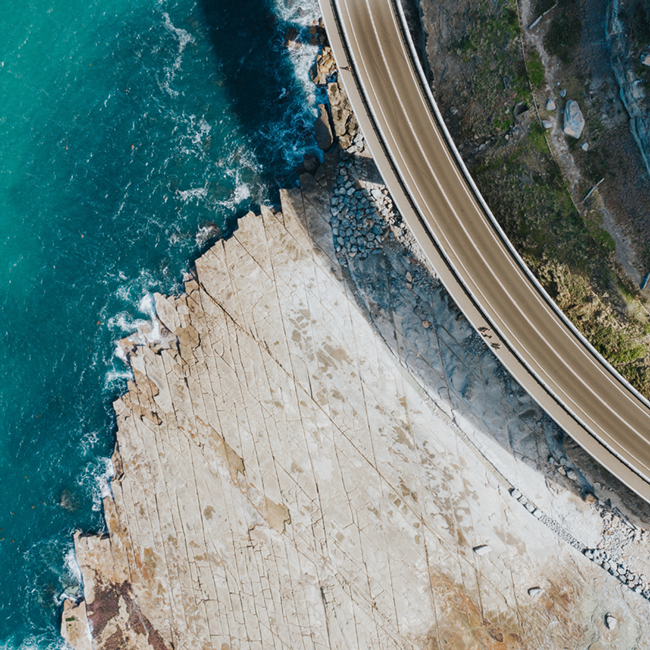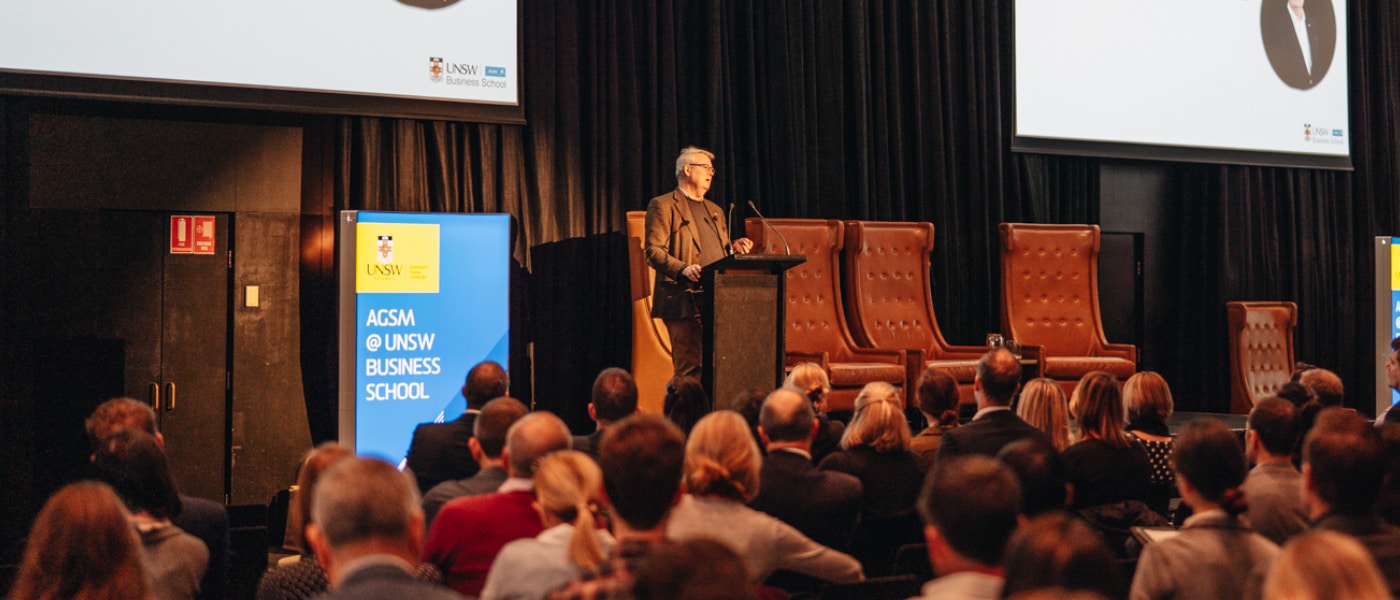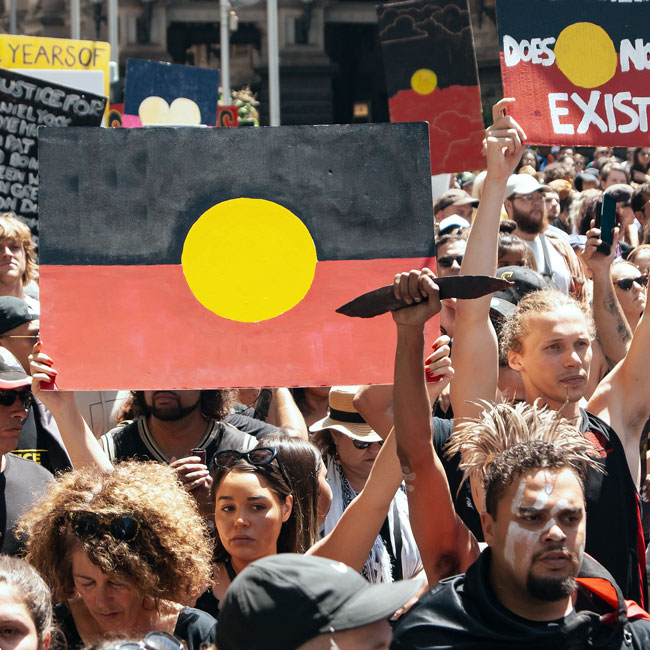Why Australian billionaires must think “less about the size of their yard” and more about philanthropy

Why Australian billionaires must think “less about the size of their yard” and more about philanthropy
Opinion + AnalysisBusiness + Leadership
BY Emma Elsworthy The Ethics Alliance 15 DEC 2022
Australians donated a record $1.16 billion last year but our mega-rich are laggards on the world stage for giving. Assistant Minister for Competition, Charities and Treasury, Andrew Leigh calls for Aussie billionaires to think less about their backyard size and more about their philanthropy.
An Australian-first report from the Centre for Social Impact (CSI) delved into who was giving and how much in 2021, finding a measly 2% of the top earners in the country gave a higher proportion of their income than the everyday Australian.
That’s despite the wealthiest 200 people owning 3.8% of the country’s wealth – some $555 billion – with the top five owning $143.28 billion alone. That means Australia’s giving total is 0.81% of the country’s GDP, behind Canada at 1%, half of New Zealand’s at 1.84%, and less than a third of the US’s, at 2.1%.
Indeed in the US, 90% of people earning over $1 million make tax-deductible donations, compared to only 55% of Australians earning the same amount. Why? The wealthy in Australia just aren’t thinking about giving enough, Leigh tells The Ethics Centre.
“I want the main topic of conversation among Australia’s successful business leaders not to be the size of your yard, but the impact that you’re making with your philanthropy – where your giving is going, how it’s changing lives, how you’re managing to have a transformative impact beyond the business,” Leigh says.
“I’m reaching out to many business leaders who are pioneers in terms of corporate philanthropy, and just asking them a simple question: ‘If you were in my shoes, how would you look to maximise impact giving in Australia?’”
And as the country emerges from the COVID-19 pandemic into a time of economic uncertainty with the cost of living surging, Australia’s charity sector faces new and frightening challenges in providing care to our most vulnerable.
Put simply, “there are more people to help and fewer people who are giving,” Leigh says.
Four out of five community sector charities struggled with an increased demand for services during the pandemic, the CSI report found. About half (54.9%) of aged care charities and income support charities (48%) made a loss or a small surplus in 2021 (whereas 44.2% of religious charities and 41% of emergency relief charities made a surplus).
“Our goal of doubling philanthropy by 2030 really is one that sits outside the business cycle. We want to permanently increase the level of generosity of Australians, not because we want government to step back, but because we think these challenges are so busy that government can’t do it alone,” he says.
And there’s plenty of reason for optimism, Leigh says, amid a growing list of billionaires parting with their wealth in the name of civic responsibility. Last December, Australia’s richest man and Atlassian co-founder Mike Cannon-Brookes and his wife Annie Cannon-Brookes vowed to invest $1.5 billion of their personal wealth to financial and philanthropic ventures aimed at fighting climate change.
Overseas, Bill Gates has pledged to part with “virtually all” of his wealth, while Meta’s Mark Zuckerberg made a 2015 pledge to donate 99% of his Facebook shares to charity. In September, Patagonia’s founder donated his entire company to the fight against climate change.
“I think it’s really apparent that a lot of the successful technology entrepreneurs in Australia have the mindset that they don’t want to leave most of their wealth to their kids. They want to give it back to the community,” Leigh says.
So how can Australian businesses emulate this groundswell to give? Consecutive lockdowns saw a reduction in corporate volunteering and pro bono services, replaced by corporate investments of products and cash. Leigh says this is a valuable opportunity to evolve our concept of giving into “impact giving”.
“We’re actually seeing quite a shift in corporate volunteering away from the sort of ‘let’s go and paint a fence on Friday’, to ‘let’s match up our skills to what the sector needs’ – more planned and more intentional corporate volunteering,” he says.
Leigh continues there is an abundance of unused corporate volunteering hours in the economy, and the MP has been meeting with businesses and the philanthropic community to discuss the smartest way to give back – the key to this, he says, is thinking about one’s “comparative advantage”, the special sauce that the next firm doesn’t have.
“The free training that’s being provided to community organisations by Canva, for example, allows designers from disadvantaged backgrounds to learn IT and design skills and get better earnings as a result. That’s something that only Canva can do.”
Leigh says for him it comes down to “putting the S back into ESG” – for Australian corporations and the billionaires that head them up to think deeply about the value of their social impact on Australia’s most needy.
“Let’s encourage a race to the top in supporting community organisations,” Leigh says.
Ethics in your inbox.
Get the latest inspiration, intelligence, events & more.
By signing up you agree to our privacy policy
You might be interested in…
Reports
Business + Leadership
Managing Culture: A Good Practice Guide
Opinion + Analysis
Business + Leadership
Businesses can’t afford not to be good
Opinion + Analysis
Business + Leadership, Health + Wellbeing
What your email signature says about you
Opinion + Analysis
Business + Leadership, Politics + Human Rights
We are on the cusp of a brilliant future, only if we choose to embrace it
BY Emma Elsworthy
Before joining Crikey in 2021 as a journalist and newsletter editor, Emma was a breaking news reporter in the ABC’s Sydney newsroom, a journalist for BBC Australia, and a journalist within Fairfax Media’s regional network. She was part of a team awarded a Walkley for coverage of the 2019-2020 bushfire crisis, and won the Australian Press Council prize in 2013.
BY The Ethics Alliance
The Ethics Alliance is a community of organisations sharing insights and learning together, to find a better way of doing business. The Alliance is an initiative of The Ethics Centre.
Why we can’t learn from our past (and shouldn't try to)

Why we can’t learn from our past (and shouldn’t try to)
Opinion + AnalysisBusiness + Leadership
BY Emma Elsworthy 12 DEC 2022
Businesses make up around two-thirds of psychic Denise Litchfield’s readings. The Australian’s clairvoyant method “looks into the energy around their business and sees if a project needs tweaking”.
For instance, she tells journalist and author Gary Nunn, she once spotted an error in an email sequence that purportedly saved a person “thousands”.
Nunn’s book, The Psychic Tests, delves into the multi-billion dollar industry of predicting the future using what we know, and why humans are so keen to do so. A healthy sceptic, Nunn was astounded to learn psychics are called upon by everyone from your average Joe or Jane right up to CEOs and even presidents.
Former BBY chairman Glenn Rosewall, who oversaw the largest failure of an Australian stockbroking firm since the financial crisis, allegedly asked a psychic advice for wealth clues for four years, including insights about the stockbroking firm’s astrological charts, hiring staff, and budgets.
Even former US president Ronald Reagan and wife Nancy called upon astrology to guide their schedules in what was called “the most closely guarded domestic secret of the Reagan White House”, though it was not used in forming policies or decision-making, Reagan assured the public.
Cash-hungry mysticism aside, the powerful seeking predictions speaks to a deeply-held human emotion to prepare oneself for the future’s challenges. But as we enter into an era with several of what Adam Tooze dubs overlapping “tipping points”, we may find no amount of looking back and learning from our mistakes will help.
Tooze, a British historian and Director of the European Institute, told The Festival of Dangerous Ideas that there is “a fundamental paradox at work” – that is, “a desire to work from history, the sense that we can go nowhere else for inspiration, but to our past experience” to equip ourselves for what’s coming.
But, Tooze continues, “this is the issue of tipping points – that fundamentally oppressive sense that we live under in the current moment – that we are years, weeks, possibly hours away from some transformative event that is going to change the world, like the pandemic did to us in a matter of days in early 2020”.
Fast-forward to now and still-deadly pandemic, a rapidly heating planet, a war in Ukraine, and several key nations including the US and EU careening towards a recession next year doesn’t exactly make building a plan for the future straightforward. But that’s exactly what Treasurer Jim Chalmers did when he crafted the Albanese government’s austere first budget last month.
While in opposition, Chalmers told the Australian Chamber of Commerce and Industry that we have just lived through “the weakest decade of growth since the 1930s, stagnant business investment, productivity and wages, growing debt,” while simultaneously facing uncertainty about “the consequences of floods and war, when interest rates will rise, the challenges of falling real wages and skills shortages – all against the backdrop of a lingering pandemic”.
This, Tooze says, cuts to the bone of the problem of trying to predict the “radical future”. “What would it actually mean to craft policy which addressed the radical novelty, which our best guess suggests what the future holds in store?” he asks.
Sure, Tooze continues, we “entrust this task to experts, it could be their job to prepare endlessly for this radical future that will be radically different”. But, he says, it’s an incredibly oppressive burden that can “destabilise your sense of normality, it tends towards the apocalyptic, it tends towards almost a fantastical notion of the future”.
“And if it’s the difference between the past and the present, that opens up the space of history, then learning from history is going to be an inherently doomed exercise from the very beginning,” Tooze says.
Perhaps it is up to our private sector to save the world. Elon Musk might be making headlines for his disruptive leadership at Twitter (including an exodus of three-quarters of the staff), but Tesla remains one of the world’s most valuable companies in the world and the number one most valuable automaker, with a market capitalisation of more than US$840 billion.
How? By breaking new ground, rather than looking back, in accelerating the world’s transition to sustainable energy with electric cars, solar and integrated renewable energy solutions for homes and businesses, taking strides to slash the world’s automotive emissions (which make up 10% of Australia’s total) and cashing in along the way.
“After all, one person’s unsolved issue is another person’s business opportunity,” as Tooze put it.
But is appointing brainy futurist technocrats like Musk or successful Wall Street billionaires like the newly-minted British PM Rishi Sunak the solution to an unclear future? Tooze says it brings up a whole lot of other questions – namely whose interests would they really be serving, and how could we be sure they were drawing “the right inferences” from the past?
“The financial interests which are doing that job for them really have free rein for those elites, we would need them to be acting in a vacuum of social power, we would need them to be free to enact as it were, the technocratic logic, the derivations of the past, the present and the future … that we want to see them doing,” Tooze says.
If there’s one thing we can take from the past with confidence, he continues, it’s English economist John Maynard Keynes telling the BBC back in 1943 that “anything we can actually do, we can afford” – we are “immeasurably richer than our predecessors”, Maynard Keynes asked. So why does “sophistry, some fallacy, govern our collective action”?
In other words, Tooze says, we have the money and we have the brains to solve our challenges. Reimagining the system may remain a lofty goal for idealists, but the self-determining reality is that it comes down to the individual. “The problem is actually concerning ourselves getting our act together to do the things,” he says.
We have the money and we have the brains to solve our challenges. Reimagining the system may remain a lofty goal for idealists, but the self-determining reality is that it comes down to the individual.
“We will make shifts, we will look for compromises, we will find hustles. We’ll differ, we’ll react, we’ll adapt, we’ll crisis fight, we will ameliorate, and we will slouch, not towards utopia or disaster, it seems to me, but potentially, possibly, towards coping,” Tooze concludes.
“The central question that I think we need to focus on is this issue of timing. Is it going to be enough? Is it going to be fast enough? … Will we be able to keep pace with this reality that we face and that preoccupies and concerns us all?”
Tune into Adam Tooze’s FODI discussion, F=fail
Ethics in your inbox.
Get the latest inspiration, intelligence, events & more.
By signing up you agree to our privacy policy
You might be interested in…
Opinion + Analysis
Business + Leadership, Health + Wellbeing, Relationships
Ending workplace bullying demands courage
Opinion + Analysis
Business + Leadership, Relationships
The role of the ethical leader in an accelerating world
Opinion + Analysis
Business + Leadership
Who are corporations willing to sacrifice in order to retain their reputation?
Opinion + Analysis
Business + Leadership
An ethical dilemma for accountants
BY Emma Elsworthy
Before joining Crikey in 2021 as a journalist and newsletter editor, Emma was a breaking news reporter in the ABC’s Sydney newsroom, a journalist for BBC Australia, and a journalist within Fairfax Media’s regional network. She was part of a team awarded a Walkley for coverage of the 2019-2020 bushfire crisis, and won the Australian Press Council prize in 2013.
Should corporate Australia have a voice?

Should corporate Australia have a voice?
Opinion + AnalysisBusiness + LeadershipPolitics + Human Rights
BY The Ethics Alliance Emma Elsworthy 24 OCT 2022
The Albanese government is preparing for the fight of its life to convince Australians an Indigenous advisory body, known as the Voice to Parliament, should receive a simple “yes” in a referendum due to take place in October 2023. But whether the Australian business community should abstain or pick a side in the campaign is a little more complex.
Some business leaders have already openly backed the Voice. CSL’s Brian McNamee called embedding Indigenous people into our Constitution for the first time nothing less than a “greater need” for the nation. Lendlease’s CEO Tony Lombardo said his company was “right behind” the Uluru Statement from the Heart and had urged his staff to think deeply about the constitutional amendment and the benefits for our First Nations peoples and the broader Australian community.
But business taking a public stance wasn’t always so. In decades prior, corporations strained to stay impartial by not weighing in on heavily politicised or social issues, seeing it as a polarising death wish amid the cohort of its customers who may err to the other side (though big political donations were a telling exception to this unofficial rule).
But the rise of social media in the era where progressive politics has assembled earth-shaking movements like Black Lives Matter, #MeToo and the fight to stop climate change has created a corporate environment where it’s not only expected companies to weigh in on big-ticket items – it’s great for business if they do.
Nearly 80% of Australians believe big brands should use their power to make an impact for real-world change on social and workplace inequality, according to research conducted by Nine and cultural insights agency FiftyFive5 – and it can turn into big bucks for corporations.
When beloved ice cream brand Ben & Jerry’s, which accounts for 3% of the worldwide market, announced in 2021 that it was stopping sales “in the Occupied Palestinian Territory (OPT)” because it was “inconsistent with our values”, Ben & Jerry’s sales saw a 9% yearly growth (though frustrated parent company Unilever denied the two were linked).
And it seems the Albanese government is all but expecting corporate Australia to take a stance on the Voice one way or another. In 2019, Prime Minister Anthony Albanese declared to the Business Council of Australia that business should feel free to speak out on social issues that align with their values.
“The most successful businesses operate in ways that reflect the values of their employees and their customers,” the then-opposition leader said.
“You are not just takers of profit – you see yourselves as part of the community.”
Albanese’s comments followed a heated speech from Scott Morrison’s assistant minister Ben Morton declaring chief executives “too often succumb or pander to similar pressures from noisy, highly orchestrated campaigns of elites typified by groups such as GetUp or activist shareholders”, foreshadowing the Teal uprising in the May federal election.
But corporate activism doesn’t have to mean go woke or go broke – as long as a company is seen as being consistent with its long-held values, a customer base or wider community will accept a more conservative position on a social or political issue too, as Daniel Korschun and N. Craig Smith write for the Harvard Business Review.
“People are surprisingly accepting of a company’s political viewpoints as long as they believe that it is being forthright,” the pair write.
“When a company makes sudden changes to its procedures or identity, it can raise red flags, especially with consumers for whom reliability is essential.”
To this end, a corporate in Australia that openly supports the “Yes” campaign for the Voice to Parliament may first quietly seek to understand the company’s own history with Indigenous Australia to avoid damning accusations of “woke washing” from the public.
Director of The Ethics Alliance, Cris Parker suggests leaders seek the answer to questions like: how many First Nations people are employed at the organisation, and is it far less than the 3% in wider society? Has the organisation proactively supported these staff, providing a culturally sensitive environment that recognises Indigenous rights?
“Basically, are you living the values of whatever social issue internally that you are considering speaking out about publicly?” Parker says.
For instance, when Nike released its “Dream Crazy” campaign to support Colin Kaepernick taking a knee during the American national anthem to protest police brutality, some were quick to point out Nike’s own reputation for using the sweatshop labour of people of colour abroad in countries like China.
Further, hot-button issues can polarise people not only within the customer base but within the work culture. Parker suggests that a corporation may add the most value during this time by fostering an environment where people can respectfully share ideas and reflect on issues together.
“Perhaps standing on a pedestal isn’t the approach which will have the greatest impact. Perhaps the impact of corporations is to demonstrate the ability to create spaces where there can be civil and informed debate – not to provide the decision or choice but to impartially inform employees and encourage intelligent enquiry,” Parker continues.
“When organisations shift to a specific advocacy position, particularly if it’s about members of our community, they risk disempowering those members and really we should be supporting self-determination.”
The best way to do this? Go back to the work culture, Parker suggests, and seek to use organisational values to create space for discussion, where crucially, everyone can feel included in the conversation.
Image by Matt Hrkac
Ethics in your inbox.
Get the latest inspiration, intelligence, events & more.
By signing up you agree to our privacy policy
You might be interested in…
Big thinker
Politics + Human Rights
Big Thinker: Kimberlé Crenshaw
Opinion + Analysis
Politics + Human Rights
Trump and tyrannicide: Can political violence ever be justified?
Opinion + Analysis
Business + Leadership
New framework for trust and legitimacy
Opinion + Analysis
Politics + Human Rights, Relationships, Society + Culture
Of what does the machine dream? The Wire and collectivism
BY The Ethics Alliance
The Ethics Alliance is a community of organisations sharing insights and learning together, to find a better way of doing business. The Alliance is an initiative of The Ethics Centre.
BY Emma Elsworthy
Before joining Crikey in 2021 as a journalist and newsletter editor, Emma was a breaking news reporter in the ABC’s Sydney newsroom, a journalist for BBC Australia, and a journalist within Fairfax Media’s regional network. She was part of a team awarded a Walkley for coverage of the 2019-2020 bushfire crisis, and won the Australian Press Council prize in 2013.
Big tech knows too much about us. Here’s why Australia is in the perfect position to change that
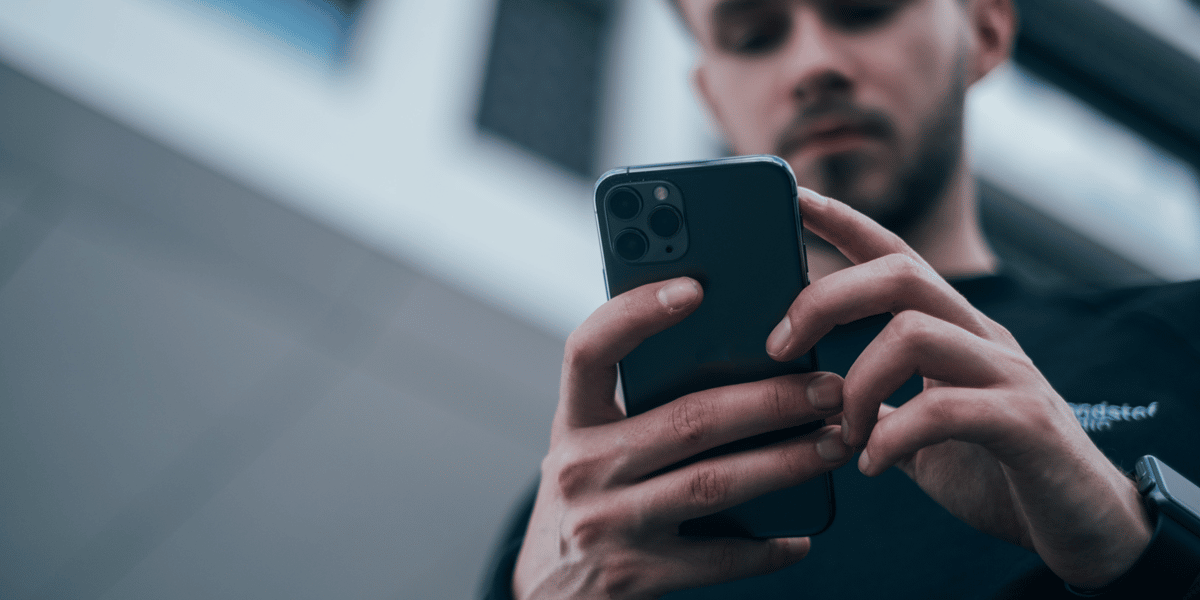
Big tech knows too much about us. Here’s why Australia is in the perfect position to change that
Opinion + AnalysisBusiness + LeadershipScience + Technology
BY The Ethics Alliance Emma Elsworthy 30 SEP 2022
Consumer Rights Data will bring an era of “commercial morality”, experts say.
Who are you? The question springs to mind a list of identity pillars – gender, job title, city, political leaning or perhaps a zany descriptor like “caffeine enthusiast!”. But who does big tech think you are?
Most of the time, we live in digital ignorance of the depth of data being scraped from everything from our Google searches to our Apple Pay purchases. Occasionally, however, we become only too aware of our own surveillance – looking at cute dog videos, for instance, and suddenly seeing ads for designer dog leashes in our Facebook feed.
It gets darker. In the wake of the US rolling back abortion law Roe v Wade, American women were discouraged from tracking their periods using an app on their smartphones. Big tech, pundits warn, could know when you’re pregnant – or more chillingly, whether you remained so.
In July, a report from Australian-US cybersecurity firm Internet 2.0 found popular youth-focused social media app TikTok could see user contact lists, access calendars, scan hard drives (including external ones) and geolocate our phones – and therefore us – on an hourly basis.
It’s “overly intrusive” data harvesting, the report found, considering “the application can and will run successfully without any of this data being gathered”.
Android users are far more exposed than Apple users because iOS significantly limits what information an app can gather. Apple has what is known as a “justification system”, meaning if an app developer wants access to something, it has to justify the requirement before Apple will permit it.
Should we be worried about TikTok’s access to our inner lives? With simmering geotensions between Australia and China – perhaps. The app is owned by ByteDance, a Beijing-based internet company, and the report found that “Chinese authorities can actually access device data”.
Professor of Business Information Systems at the University of Sydney Uri Gal writes that “TikTok’s data can also be used to compile detailed user profiles of Australians at scale”.
“Given its large and young Australian user base, it is quite likely that our country’s future prime minister and cabinet members are being surveilled and profiled by China,” he warned.
Australia is in a strong position to take action on the better protection of consumer data. Our world-leading Consumer Data Right (CDR) is being rolled out across Australia’s banking, energy and telecommunication sectors, placing the right to know about us back into our own hands.
Could our consumer rights expand beyond privacy rights to include specific economic rights too? Almost certainly, under CDR.
For instance, energy consumers would no longer have to wade through confusing fine print to work out whether they’re getting the best (and cheapest) electricity deal – with a click of a button they’d have their energy usage data sent to a new potential supplier, and the supplier would come back with a comparison.
That means no endless forms of information required upfront by a new provider, no lengthy phone calls spent cancelling one’s current provider, and crucially, no last-minute left-field discounts from a provider to keep you as a customer.
“Within five years, it should have transformed commerce, promoted competition in many sectors, and simplified daily life,” according to The University of NSW’s Ross P Buckley and Natalia Jevglevskaja.
“Thirty years ago, most Australian businesses thought charging current customers more than new customers was unfair and the law reflected this – such differential pricing was illegal,” the pair continued.
“Today those standards of behaviour seem to have fallen away and this is reflected in more relaxed consumer laws. In many contexts, CDR should reinstitute a commercial morality, a basic fairness, that modern business practices have set aside.”
A rethink of what it means to operate with transparency is what motivates fintech Flare, which aims at transforming the way Australians earn and engage in the workplace with superannuation, banking, and HR services.
Flare’s Head of Strategy Harry Godber was actually one of the original architects of CDR’s launch, which took place during his time in government as a former senior government advisor to Liberal prime ministers Malcolm Turnbull and Scott Morrison.
“[CDR] is designed to get rid of those barriers, get rid of the information asymmetry and allow you to have as much information about your banking products as someone else in the market as your bank has about you,” Godber said.
It’s a great equaliser, he continues, in that data will no longer separate the “haves and the have-nots” in the consumer world – essentially, financial literacy won’t ensure a consumer gets a better deal on products.
“That is a huge step forward when it comes to distributing financial products in an ethical way,” he continued.
“Because essentially it means if all data is equal, if everybody has access to every financial institution’s open product data and knows exactly how they will be treated then acquiring a customer suddenly becomes a matter of having good products, and very little else.”
Ethics in your inbox.
Get the latest inspiration, intelligence, events & more.
By signing up you agree to our privacy policy
You might be interested in…
Opinion + Analysis
Business + Leadership
6 Myths about diversity for employers to watch
Opinion + Analysis
Science + Technology
Bladerunner, Westworld and sexbot suffering
Opinion + Analysis
Business + Leadership
The great resignation: Why quitting isn’t a dirty word
Opinion + Analysis
Business + Leadership, Relationships
